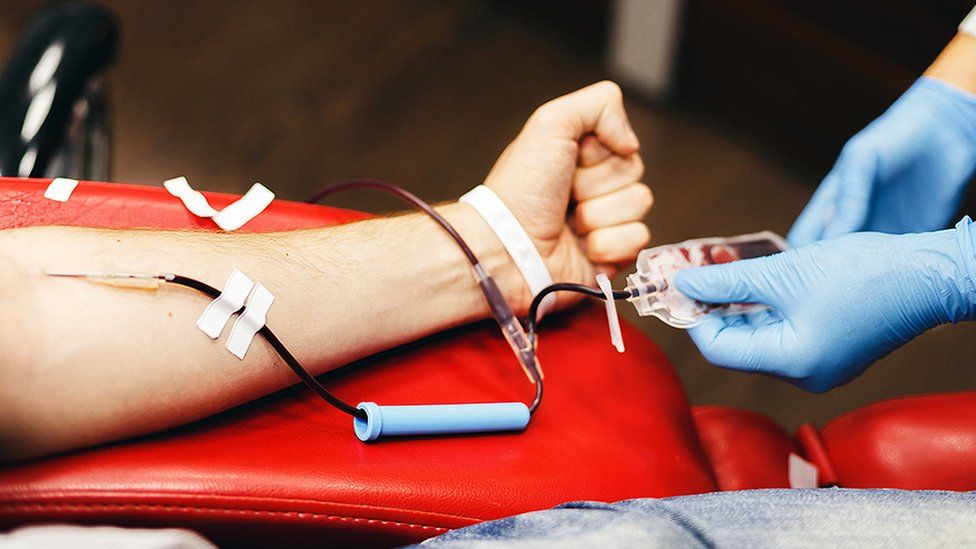Canadian health officials have removed a ban on blood donations from gay men, one that has long been condemned as homophobic.
The old rule prevented donations from men who have had sex with other men within three months of giving blood.
Health Canada called the move “a significant milestone toward a more inclusive blood donation system”.
Countries around the world have been lifting similar bans in recent years.
As of 30 September, prospective donors will not be asked about their sexual orientation during the screening process but instead about whether they engage in any higher-risk sexual behaviours.
The policy change comes after Canadian Blood Services, which collects blood and blood product donations across most of the country, submitted a request last year to scrap the rule to Health Canada, which announced it had approved it on Thursday.
Prime Minister Justin Trudeau’s Liberal party first made the promise to end the donation ban during the 2015 federal election campaign and has faced growing criticism for its failure to do so.
At a news conference on Thursday, Mr Trudeau said the change that was long overdue, calling the current approach “discriminatory and wrong”.

Many countries instituted similar donation bans during the Aids epidemic of the 1980s. Experts have found that the bans had little effect, since blood is now systematically screened in advance for viruses such as HIV and Hepatitis B and C.
The UK lifted its own three month ban on blood donations from gay men last year. France, Greece, Israel, Hungary, Denmark and Brazil have also recently lifted restrictions.
Facing a blood shortage due to the coronavirus pandemic, the US reduced its celibacy requirement for gay men from one year to three months in October 2020.
